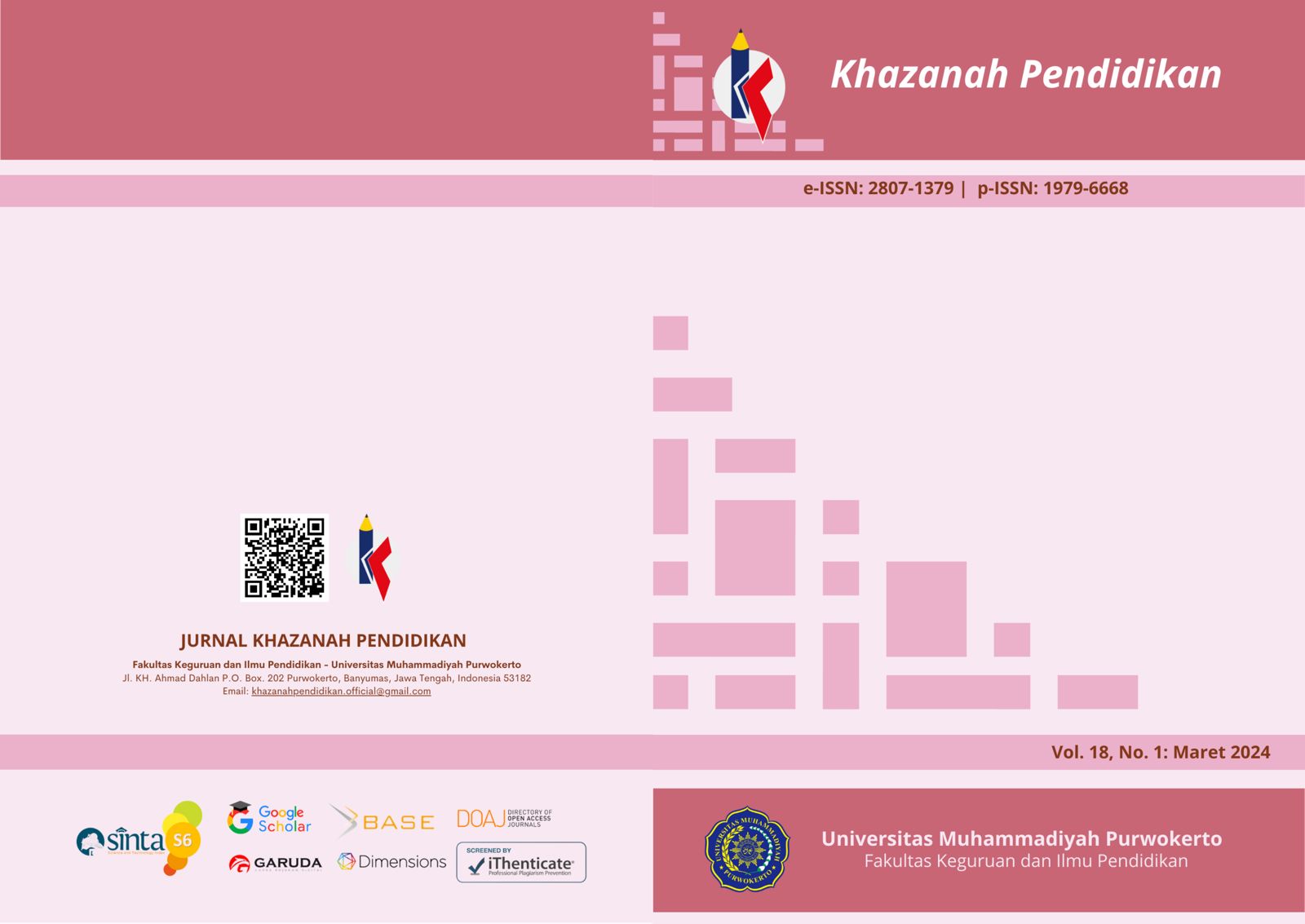MENINGKATKAN KEMAMPUAN BERPIKIR KRITIS PESERTA DIDIK MELALUI MODEL PEMBELAJARAN PJBL DI KELAS X.10 SMA NEGERI 5 PALEMBANG
DOI:
https://doi.org/10.30595/jkp.v18i1.19327Keywords:
Critical Thinking Ability, Project Based Learning, StudentsAbstract
This study aims to improve critical thinking skills through a project based learning model in class X.10 SMA Negeri 5 Palembang. This study involved 38 students. The research procedure includes planning, implementing actions, observing, and reflecting which consists of three learning cycles. The type of data obtained in this study is quantitative data obtained from formative test results to measure students' abilities. The results of the research and discussion show that there was an increase in the results of critical thinking skills tests from cycle I to cycle II of 16.8%, then from cycle II to cycle III there was an increase of 13.2%, and overall from cycle I to cycle III there was an increase of 30%. From the results of this study, it can be concluded that there is an increase in the critical thinking skills of class X.10 students of SMA Negeri 5 Palembang in economics subjects through a project-based learning model.References
ida, N. A., Yudiyanti, A. P., & Rahmandani, S. (2023). Pengaruh Model Pembelajaran Experimental Learning Berbasis Phet Simulasi Terhadap Hasil. Jurnal Ilmiah Kependidikan. Vol.10, 15–23.
Angelyn, C., Simatupang, H., & Sianipar, D. (2021). Efektivitas Penerapan Model Project Based Learning Pada Materi Sistem Sirkulasi Manusia Terhadap Hasil Belajar Siswa SMA St. Maria Tarutung. BEST Journal (Biology Education, Sains and Technology), 4(2), 20–27. https://doi.org/10.30743/best.v4i2.4023
Depdiknas .(2003). Undang-undang RI No.20 tahun 2003.Tentang Sistem Pendidikan Nasional.
Fitria, S. J.(2023). Pengembangan Media Pembelajaran Powerpoint Interaktif Pada Submateri Peserta Didik Kelas X SMA; Development of Interactive Powerpoint Learning Media on Environmental Pollution Submaterials to Train Critical Thinking Ability of 10 th Grade in Senior High Sc. 12(2), 440–451.
Kusumaningtyas, N., Sikumbang, D., Hasnunidah. (2020). Pengaruh Model Project Based Learning (PjBL) Terhadap Kemampuan Berpikir Kreatif Peserta Didik. Jurnal Bioterdidik, 8(2), 11–19. http://jurnal.fkip.unila.ac.id/index.php/JBT/
Nadiyah, F., & Tirtoni, F. (2023). Pengaruh Project Based Learning Terhadap Kemampuan Berpikir Kritis Siswa Dalam Kurikulum Merdeka Belajar. VOX EDUKASI : Jurnal Ilmiah Ilmu Pendidikan, 14(1), 25–36. http://jurnal.stkippersada.ac.id/jurnal/index.php/VOX
Sulastri, S., & Cahyani, G. P. (2021). Pengaruh project based learning dengan pendekatan STEAM terhadap kemampuan berpikir kritis pada pembelajaran online di SMK Negeri 12 Malang. Jurnal Pendidikan Akuntansi (JPAK), 9(3), 372-379.
Sunismi, dkk. (2022). Pembelajaran Berbasis Proyek (Project Based Learning). Malang: CV. Literasi Nusantara Abadi.
Triningsih, R., & Mawardi, M. (2020). Efektivitas Problem Based Learning Dan Project Based Learning Ditinjau Dari Keterampilan Berpikir Kritis Siswa SD. JRPD (Jurnal Riset Pendidikan Dasar), 3(1), 51–56.
Zahroh, F. (2020). Pengaruh model pembelajaran project based learning terhadap kemampuan berpikir kritis siswa pada materi elektrokimia. Phenomenon: Jurnal Pendidikan MIPA, 10(2), 191-203.
Downloads
Additional Files
Published
Issue
Section
License
Authors who publish with this journal agree to the following terms:
Authors retain copyright and grant the journal right of first publication with the work simultaneously licensed under a Creative Commons Attribution License that allows others to share the work with an acknowledgement of the work's authorship and initial publication in this journal.
Authors are able to enter into separate, additional contractual arrangements for the non-exclusive distribution of the journal's published version of the work (e.g., post it to an institutional repository or publish it in a book), with an acknowledgement of its initial publication in this journal.
Authors are permitted and encouraged to post their work online (e.g., in institutional repositories or on their website) prior to and during the submission process, as it can lead to productive exchanges, as well as earlier and greater citation of published work (See The Effect of Open Access).

Khazanah Pendidikan is licensed under a Creative Commons Attribution 4.0 International License.


